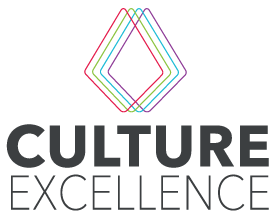Case Study: Kerry
The food industry has a massive job ahead of them with regards to environmental sustainability - we all have a responsibility to contribute.
With over 22,000 employees and over 121 nationalities, Kerry manufactures a vast variety of products including nutrition solutions, taste ingredients and food and drink solutions in 31 countries.
The world is currently in crisis. With population growth, climate change and food poverty, we are facing unprecedented times globally. 26% of total greenhouse gas emissions are caused by food production (Our World in Data, 2019) therefore the food industry has a responsibility to address these challenges. Campbell Mitchell, Regional Food Safety and Quality Manager, MISA shares how Kerry recognises that there is lots of work to be done in making the food industry more environmentally sustainable and are committed to positively contributing to the world. This is something that Kerry feel passionately about and that their customers do too. Encouragingly, there is increasing consumer appetite for sustainable products to be brought to market. The food industry has a tough challenges to meet all of the requirements of consumers.
Kerry’s purpose is to “inspire food and nourish life”, directly linking to innovation and sustainability. The aim is to be a customer’s most valued partner, creating a world of sustainable nutrition. The Kerry company values are shared with all colleagues throughout the world and inform the actions taken in both the short-term and long-term.
In addition to their values, the Kerry sustainability strategy has been developed to help create positive change and maximise impact, making products better for customers, better for people, better for society and better for the planet. By implementing this strategy, the company hope to achieve the aim of providing over two billion people with safe, quality, sustainable and nutritional solutions by 2030.
Culture Excellence modules for food safety, quality, health and safety and environmental sustainability have been adopted and utilised throughout Kerry. Campbell reported this to be a really useful tool in order to establish a baseline of cultures in particular areas.
Areas of opportunity is a powerful tool that allows baseline assessment and identifies areas for improvement.
Environmental sustainability is perceived as a strong strategic initiative for Kerry and this was reflected with high scored within the vision, values and strategy dimensions.
Extremely useful to understand what employees are think of the health and safety and environmental sustainability strategies within the company and identify areas for improvement and further engagement.
Every employee does not need to answer every question, however all results are statistically significant.
Reference: Campden BRI (2022), Culture Excellence 8th Annual Seminar




